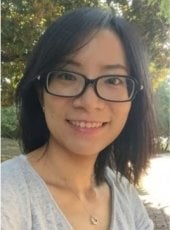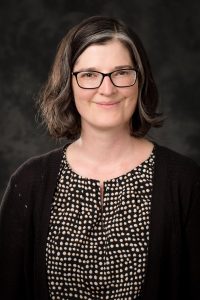 Shan Zhou (Social Sciences) recently published “Environmental Justice and Green Schools—Assessing Students and Communities’ Access to Green Schools” in the journal Social Science Quarterly. This article investigates equity in the distribution of green schools in the U.S., what kind of student populations they serve, and what kind of communities host them. Leveraging national school enrollment data (2000–2014), Leadership in Energy and Environmental Design (LEED) data, and communities’ characteristics data from 2010 U.S. Census, Shan Zhou and coauthors estimate logit models to examine the association between green schools and student and community demographics. Results show that higher percentages of minorities in both student population and hosting neighborhood are associated with greater likelihood that new schools are green, and that new schools in more affluent and less educated communities are less likely to be green.
Shan Zhou (Social Sciences) recently published “Environmental Justice and Green Schools—Assessing Students and Communities’ Access to Green Schools” in the journal Social Science Quarterly. This article investigates equity in the distribution of green schools in the U.S., what kind of student populations they serve, and what kind of communities host them. Leveraging national school enrollment data (2000–2014), Leadership in Energy and Environmental Design (LEED) data, and communities’ characteristics data from 2010 U.S. Census, Shan Zhou and coauthors estimate logit models to examine the association between green schools and student and community demographics. Results show that higher percentages of minorities in both student population and hosting neighborhood are associated with greater likelihood that new schools are green, and that new schools in more affluent and less educated communities are less likely to be green.

Richelle Winkler was recently invited by the Director of the United States Bureau of the Census to serve as an appointee to the U.S. Census Bureau’s Census Scientific Advisory Committee (CSAC) on a three-year term. The CSAC consists of about 21 members from academia, public and private enterprise, and nonprofit organizations. It provides strategic perspective and advice to the Director of the Census Bureau on the full range of Census Bureau programs and activities.
 Nancy Langston (SS) the subject of a Wisconsin Public Radio segment about Lake Superior.
Nancy Langston (SS) the subject of a Wisconsin Public Radio segment about Lake Superior.
 An architectural historian advocates for more building documentation following Notre Dame.
An architectural historian advocates for more building documentation following Notre Dame.
Following the fire in Paris, more attention is focusing on the new technologies that will help people rebuild damaged or lost buildings. Sarah Fayen Scarlett, assistant professor of history at Michigan Technological University, says that an uncommon loss like Notre Dame reflects a universal need for documenting historical buildings.
The Torch Lake Area of Concern Public Action Council (TLPAC) will host the Statewide Public Advisory Council (SPAC) meeting in Houghton, Michigan on July 16 and 17, 2019 at Michigan Technological University’s Great Lakes Research Center in Room 202. Sessions are scheduled for 8:30 a.m. to 12 p.m. both days. In addition, there will be a tour of Torch Lake on July 16 after the end of the morning session. The Office of Great Lakes (OGL) staff who assist the SPAC will be in attendance to update the Council on Michigan and federal actions which affect the progress of cleanups in the Great Lakes.
Areas of Concern (AOCs) are highly polluted sites on bodies of water that pose a danger to their communities. There were originally fourteen AOCs in Michigan. The pollution problems of AOCs are specifically identified as Beneficial Use Impairments (BUIs) for each AOC. The role of a public advisory council is to identify the problems, do community outreach and develop a network of government and non-governmental groups to address the concerns of their communities. Torch Lake has recently been active in seeking solutions to the stamp sands dumped into the lake by former mining companies which have made it difficult to have healthy benthos, or aquatic life, due to the spread of sands throughout the bottom of the lake. New efforts are underway to revive Torch Lake’s benthos that could lead to a major clean up within the next decade. Along with the work being done by the state’s Department of Environment, Great Lakes and Energy Remediation Division to remove toxic chemicals along the west shore of Torch Lake, funding is being sought from the Great Lakes Restoration Initiative to find ways to repair the damage created by copper mining companies since the latter part of the nineteenth century.
The public is invited to the SPAC meeting on both days to hear about progress being made by the advisory councils in the entire state. The OGL and the Great Lakes Commission will update council members on state, federal and international activities. Research currently being conducted at the University of Michigan and Michigan Technological University will also inform council members of effective ways to engage their communities. The Keweenaw Bay Indian Community will have its President, Chris Swartz, explain the importance of Torch Lake to their community under their treaty rights and the work they have done to improve water quality on their reservation. SPAC meetings are an opportunity for members to network and to find out not only what concerns an AOC has, but also to see the host community and its attractions.
For information, contact Horst Schmidt, Vice-Chair of the SPAC at horsthear@yahoo.com or 906-369-3797.
by Kelley Christensen (Social Sciences)
Nancy Langston (SS/GLRC) is Principal Investigator on a project that has received a $113,294 research and development grant from the National Science Foundation. The project is titled, “The New Mobilities of the Anthropocene: Animal Migration, Infrastructure Development, and Wildlife Population Management.” Casey Huckins (Biological Sciences/GLRC) is Co-PI. This is the first year of a potential three-year project totaling $397,760.


The article, Sorting out a problem: A co-production approach to household waste management in Shanghai, China, published in Waste Management journal and co-authored by Hongmei Lu and Roman Sidortsov explores an innovative approach to waste management in Shanghai.
Rapid urban population growth in China has resulted in significant challenges for Municipal Solid Waste (MSW) management. To combat these challenges, Chinese authorities implemented a pilot program of MSW sorting in eight Chinese cities including Shanghai in 2000 but is yet to reach a widespread success. This paper uses a qualitative case-study approach to explore the potential of a community-based co-production strategy for household waste sorting as an alternative to the conventional top-down approach. Co-production implies the involvement of citizens, consumers, volunteers and/or community organizations in producing public service. We find two major drivers of the government-volunteer consortium and the peer-pressure effect help realize the potential of waste-management co-production at a lowered cost with improved efficiency and collaborative innovation. In addition, context-specific conditions including policy consistency, strong volunteer effort and compatibility with local culture to promote public participation must be present for further co-production application. We also acknowledge that the co-production approach would be most effective at the initial stage of policy implementation to foster the waste-sorting habit-formation in regions where the waste collection rates remain low.

Hongmei Lu (SS PhD student), Audrey Mayer (SFRES), Adam Wellstead (SS), and Shan Zhou (SS) published an article titled, “Can the dual identity of policy entrepreneur and policy implementer promote successful policy adoption? Vertical greening policymaking in Shanghai, China” in the Journal of Asian Public Policy.

Adam Wellstead co-authored “Peering into the black box of government policy work: The challenge of governance and policy capacity” in the Canadian Political Science Review.
 Angie Carter recently published ‘”We Don’t Equal Even Just One Man: Gender and Social Control in Conservation Adoption” in Society & Natural Resources, the flagship journal of the International Association for Society and Natural Resources.
Angie Carter recently published ‘”We Don’t Equal Even Just One Man: Gender and Social Control in Conservation Adoption” in Society & Natural Resources, the flagship journal of the International Association for Society and Natural Resources.